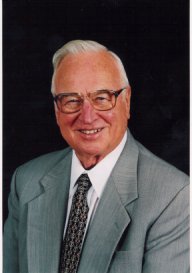My PBL Odyssey (Part 2): Education Ain't An Exact Science: Revelations from Five High Schools in Four Years
By Joe Oakey
Reprinted from PBLNEWS, August 1997

My PBL Odyssey (Part 2): Education Ain't An Exact Science: Revelations from Five High Schools in Four Years
|
 |
In my last article, you may remember that I had established a very negative attitude about education in the fifth grade. My odyssey continues with my high school experience.
First, let me establish the background. My high school years occurred at the depth of the Great Depression, from 1934 to 1938. My father was an inventor and developer of automated machinery to make the manufacturing process more uniform and less craft-based. Prior to the depression, manufacturers came to him for the development of new processes, so our lives were very stable. With the depression making development money very scarce, he found it necessary to do the work onsite with the companies that could afford development contracts. Each summer the family would look at the work locations he had lined up and we would move to the most central place to establish our residence for that year.
Due to this peripatetic living, I had the experience of attending five different schools in my four years of high school. I imagine that most high-school students assume that schools are some kind of standard institutions, and that those schools all know well what education is and do the best they can within those standard parameters.
The schools I attended, (two in Illinois, two in Kentucky, and one in New York State) convinced me that such an assumption was fallacious. Those schools ranged from small rural schools, to an urban school, to a very well-known, wealthy suburban school district near Chicago.
I found the educational offerings at these schools to be substantially different. The rural schools impressed me as the best schools for socializing students, both in school and within the community, the urban school was the best educational experience, and the high-class suburban school had such capable students that teachers did not have to expend much energy really teaching, because students did well on their own.
In my opinion, the suburban school was the poorest of the five in spite of having the best facilities and equipment. I attribute that, in retrospect, to a smug, self-satisfied faculty.
As for curriculum, because of the many changes, there was no continuous curriculum for me. Each school tried to patch up a curriculum for me that best fit what they offered. In some ways I liked that experience, since it was my job to try to build some continuity into this discontinuity. (It was my own project, so to speak.)
I learned early that schools absolutely favor the college prep curriculum.
I always liked working with wood, and at each school in the frustration of trying
to get me into classes, I would suggest a woodshop class. At each the immediate
response was, "No, we can't do that, you are college prep." (I should
explain that my number one hobby is woodworking, and it is all
self-taught.)
At one school, I tried to get into a typing class and was told that since it was vocational I couldn't take it. To add to the school problems, I should also say that every year except my freshman year, I started school late because moving, finding a residence, and all the related confusion did not allow me to get to the schools at opening time. Due to that, classroom routine and instructions were usually well-established before I appeared on the scene. In my senior year, I didn't enroll in school until after the Christmas holiday, an experiences that will be the subject for my next odyssey report.
I was fortunate that year to have an understanding principal who said that if I could catch up with my classes, I might be able to complete my school year by June because I would be attending at least a part of the first semester.
The conclusion I draw from these experiences, one that leads me to believe so passionately in Project-Based Learning, is that schools are very different, there is no one best way to organize the school learning experience, and that the one invaluable lesson that all students should master is how to cope with reality and adjust to new ideas and experiences. I don't recommend the changing school route, but think the reality of the lessons I learned should be made a part of the experience in all schools.
The next and last segment of my odyssey will relate to my actual and responsible work experience during these school years. In some ways, I think they were of inestimable value to me. It is the reason I am now very enthusiastic about realistic work experience for students during their high-school years, and enthusiastically support current school-to-work programs.
About the Author:
Joe Oakey is President Emeritus of the Autodesk Foundation.